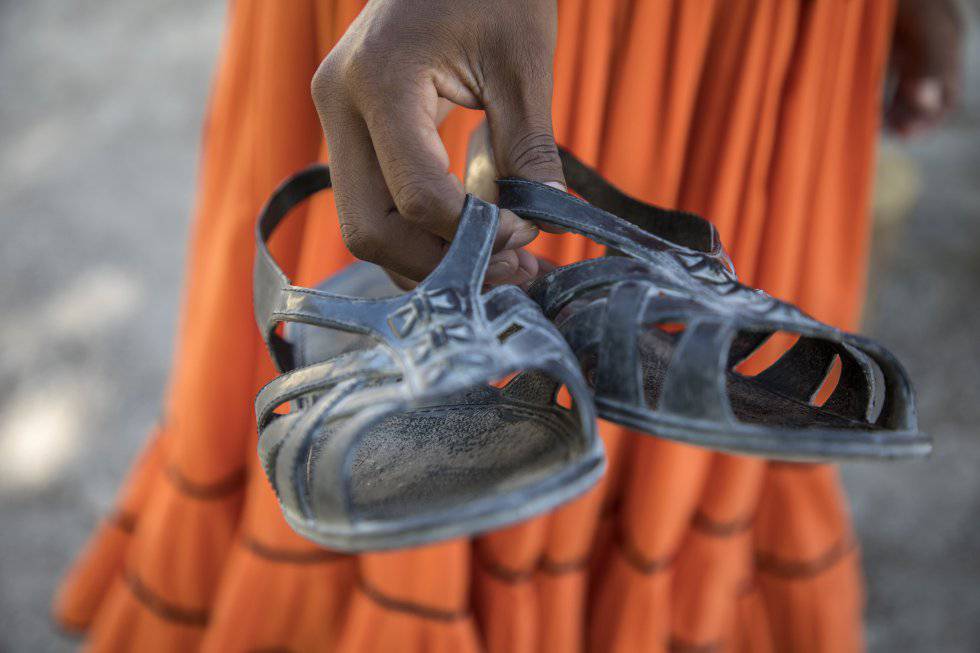Her achievement made headlines and was widely reported on social networks. As a result, she and her brother were invited to take part in Spain’s grueling Tenerife Bluetrail race, in the 97-kilometer Ultra category, held on June 10, making her the first Rarámuri woman to take part in a European ultra-marathon. In the event, Lorena was unable to finish the race and had to be evacuated by helicopter after she injured her ankle.
Less than a week before leaving Mexico for the first time, she and her brother spoke from their home in Rejogochi, a community in the mountains of Mexico’s Sierra Madre, in the northern state of Chihuahua.
Given that Lorena barely speaks Spanish, her brother Mario does most of the talking. “We are going to train to make you stronger, because there are mixed-race women who are good at running,” he tells her. That said, Rarámuri runners tend not to follow formal training schedules ahead of ultra-marathons.

To keep hydrated, the Tarahumara runners eat pinole, a corn paste, also part of their daily diet.CHRISTIAN PALMA
Lucrecia’s routine includes long trails and climbs through the steep canyons of the Tarahumara mountains. The siblings say they remember as children walking for up to six hours a day looking after their family’s goats or going with their father to the nearest village to buy food. As a result, Lorena has been among the first to cross the finishing line in the internationally known Barrancas del Cobre race.
She came third in the 2016, 80-kilometer Caballo Blanco ultra-marathon, a year after finishing fourth in the 100-kilometer Cañones ultra-marathon, both in the Barranco de Cobre region of Chihuahua.
Lorena estimates she has run some 15 ultra-marathons since she began competing at the age of 17, and always in huaraches, which she says are lighter and have better grip than running shoes.
Source: http://elpais.com



